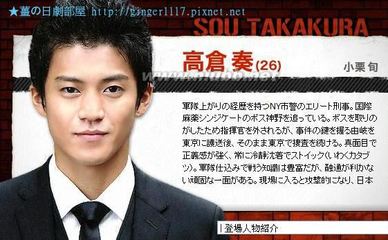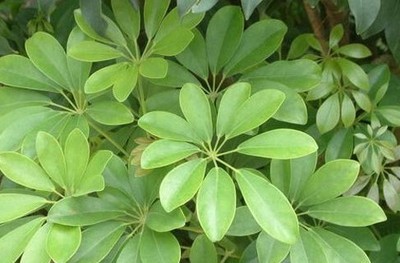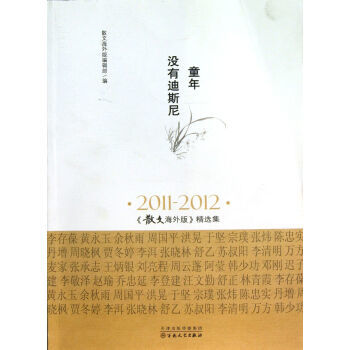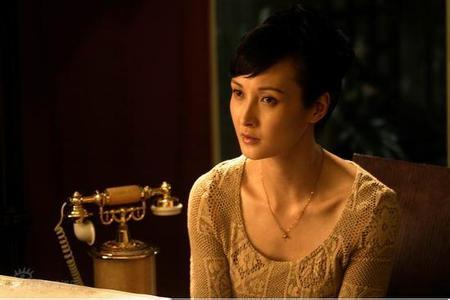callas_Callas -简介
1923 December 2 Maria Anna Sophie Cecilia Kalogeropoulos is born in New York . Her parents, George and Evangelia Kalogeropoulos had emigrated froom Greece to Long Island, New York in August 1923.
1929 George Kalogeropoulos sets up a pharmachy in a Greek quarter of Manhattan and changes the family name to Callas.
1932 Maria is given her fist paino lessons. Later in life she is able to study all her roles at the piano without the help of a "repetiteur".
1937 The Callas parents separate. Evangelia returns to Greece with her two daughters and changes the family name back to Kalogeropoulos.
1938 Maria Kalogeropoulos is admitted to the National Conservatoire in Athens despite being younger than the minimun age requirement of 16, and begins her studies under Maria Trivella.
April 11: Appears with fellow students in first pubblic recital.
1939 April 2 Maria makes her stage debut as Santuzza in a student production of "Cavalleria Rusticana" and wins the Conservatoire’s prize.
Elvira de Hidalgo becomes Maria’s teacher at the Conservatoire and concentrates oncoloraturatraining.
1940 October 21 First engagement with the Lyric Theatre company, singing songs in Shakespeare’s Merchant of Venice at the Royal Theatre in Athens.
1941 January 21 Makes her professionaloperaticdebut as Beatrice in "Boccaccio" at the Palas Cinema with the Lyric Theatre company with whom she will sing in ""Tosca"", "Tiefland", "Cavalleria Rusticana", "Fidelio", and "Der Bettelstudent" during the next four years.
1942 August 27 Sings "Tosca" for the first time in Greek at an open-air performance at the Park Summer Theatre Kaftmonos Square.
1944 The occupying forces lose control over Greece and the British fleet arrives in Piraeus. Maria Kalogeropoulos decides to returns to the USA and find her father.
1945 August 3 Gives a "farewell" concert in Athens, her first solo recital, to raise money for her journey to the USA.
September Returns to New York and takes up the name of Callas again.
December : Auditions for the Metropolitan Opera, but fails to secure an engagement.
1946 Tries unsuccessfully to find work, but continuesstrenuousvocal pratice to perfect her technique. Meets agent Eddie Bagarozy. Accepts engagement to sing in Turandot in Chicago in January 1947 with a cast of celebrated European singers in a new company to be founded by Bagarozy and Ottavio Scotto, an Italianimpresario.
1947 January: The Chicago company goes bankrupt a few days before its scheduled opening performance. Nicola Rossi Lemeni, the Italian bass, is also a member of the company and introduces Callas to Giovanni Zanatello, who is in the U.S. to find singers for the 1947 Verona Opera Festival of which he is the Artistic Director. He engages Callas to sing in "La Gioconda".
June 27: Callas arrives in Naples and goes the next day to Verona to begin rehearsals for "La Gioconda". A few days later she meets Giovanni Battista Meneghini, a wealthy italianindustrialistand opera lover.
August 2: Makes her Italian debut in the Arena at Verona as La Gioconda conducted by Tullio Serafin. The performances are successful enough, but Callas makes no special impression and the expected offers of further work do not materialise.
December 30 : Sings Isolde in Italian under Serafin at La Fenice in Venice and this leads to further engagements in Italy, mainly in Turandot.
1948 November 30: In Florence, Callas sings "Norma" for the first time- an opera she will eventually perform more than any other during her career.
1949 January 19 Having just sung her first Brunhilde in "Die Walkure" eleven days earlier. Callas, at the insistance of Serafin, replaces the indisposed Margherita Carosio as Elvira in "I Puritani" at La Fenice. This is the turning point in Callas’s career and the start of her involvement in rehabilition of the ItalianBel Cantorepertoire.
April 21: Marries Meneghini in Verona and sails that night for Argentina to sing at the "Teatro Colon" in Buenos Aires.
Helped by Meneghini as both husband and manager, Callas develops her career in Italy and abroad during the next two years.
1951 December 7: Callas opens the seasons at La Scala, Milan in "I Vespri Siciliani" to great acclaim. During the next seven years La Scala will be the scene of her greatest triumphs in a wide range of roles.
1952 July 29 Callas signs a recording contract with EMI and in August makes a test recording of "Non mi dir" from "Don Giovanni".
1953 February : First commercial recording for EMI as Lucia di Lammermoor recorded in Florence. Later in the year Callas begins a series of complete opera recordings at La Scala starting with "I Puritani" and "Cavalleria Rusticana" with Serafin, and famous ""Tosca"" conducted by Victor de Sabata.
1954 In a short space of time Callas loses 30 kilos and her figure changes dramaticaly. She records a further four complete operas at La Scala and her first two recital discs in London.
November : She returns to the USA to sing ""Norma"", "La Traviata" and "Lucia di Lammermoor" in Chicago.
December : She opens the season at La Scala in "La Vestale", working for the first time with theatre and film director Luchino Visconti.
1956 October 29: Sings for the first time at the Metropolitan in New York in ""Norma"", followed by ""Tosca"" and "Lucia".
1957 Elsa Maxwell, the American society hostess, introduces, the Meneghinis to the Greek shippingmagnateAristotile Onassis at a party in Venice.
1958 January 2: Claming illness , Callas walks out after the first act of a gala performance of ""Norma"" in Rome attended by the President of Italy and all Rome society. She is harshly criticised in the media.
May: At La Scala during performances of "Il Pirata" she quarrels with the general director Antonio Ghiringhelli, and decides not to appear again at La Scala while he remains in charge.
November 6: Rudolf Bing director of the Metropolitan Opera, fires Callas after failing to reach agreement on performances for the next season.
December 19: She makes a sensational debut in Paris in a gala concert at the Paris Opera. Celebrities in the audience include Onassis who begins to take interest in Callas.
1959 By this time Callas has fewer professional engagements. She and Meneghini are invited for a cruise in July on the Christina, Onassis’s yacht, with several other guests including Churchill. By the end of the cruise Callas and Onassis are lovers and the Meneghini marriage is over.
1960/1961 Callas gives up the stage altogether and devotes herself to the international high life with Onassis. By 1962 she is performing only at few concerts.
1964 January: Zeffirelli persuades Callas to return to opera at Covent Garden in a memorable new production of "Tosca" that is highly praised on all counts.
May : Callas appears in Paris in "Norma", directed by Zeffirelli, in a spectatcular staging that is to be her last new production. Despite some vocal problems, the performances are succesfull overall.
1965 February: She sings nine performances of "Tosca" in Paris.
March : She makes a triumphant return to the Metropolitan in New York in two performances of "Tosca".
May She undertakes a further series of five performances of "Norma" in Paris. She feels tired but does not want to cancel.
On May 29 she finishes Act 2 Scene I pratically in a coma. The final scene is cancelled.
July: She is scheduled to sing four performances of "Tosca" at Covent Garden. She is advised on medical grounds to withdraw but she decides to sing just one, choosing the Royal Gala on July 5. This is the final operatic preformance of her career.
1966 Callas reliquishes her American citizenship and takes Greek nationality. Thereby technically annulling her marriage to Meneghini. She expects Onassis to marry her but he does not.
1968 October 20: Onassis marries Jacqueline Kennedy, widow of assassinated US president John F. Kennedy, after having cooled his relationship with Callas.
1969 June-July: Callas plays "Medea" in non operatic film of the play byEuripidesdirected by Pier Paolo Pasolini. It is not a commercial success.
1971/1972 Callas gives a series of Master Classes at the Juilliard School of Music in New York. She meets up again with her old colleague, the tenor Giuseppe di Stefano, and the two become close friends.
1973 Di Stefano persuades Maria Callas to undertake an extensive international recitals tour with him to raise money for medical treatment for his daughter. The tour, a personal triumph but an artistic failure, begins in Hamburg on October 25 and continues into 1974.
1974 November 11 The final concert of the tour with Di Stefano takes place in Sapporo, Japan. This is Callas’s last public performance. The liaison with Di Stefano finishes.
1975 Onassis dies, following a gall blader operation. Callas is by now a virtual recluse in Paris.
1977 September 16 Callas, died in Paris - but the cause of her death still remainsunclear.
callas_Callas -友情链接
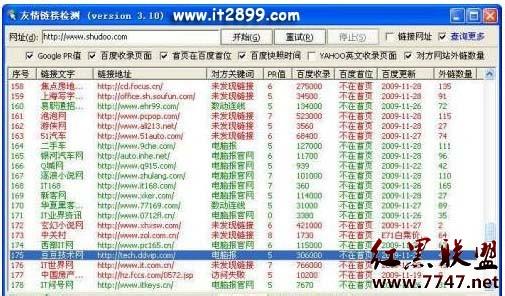
文字典故汉语古文难字语文
 爱华网
爱华网
